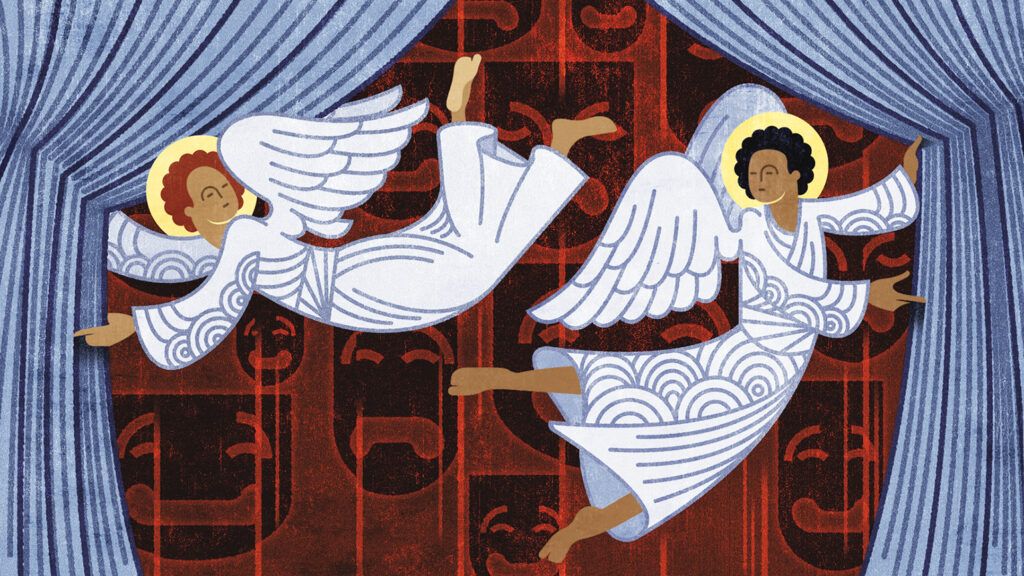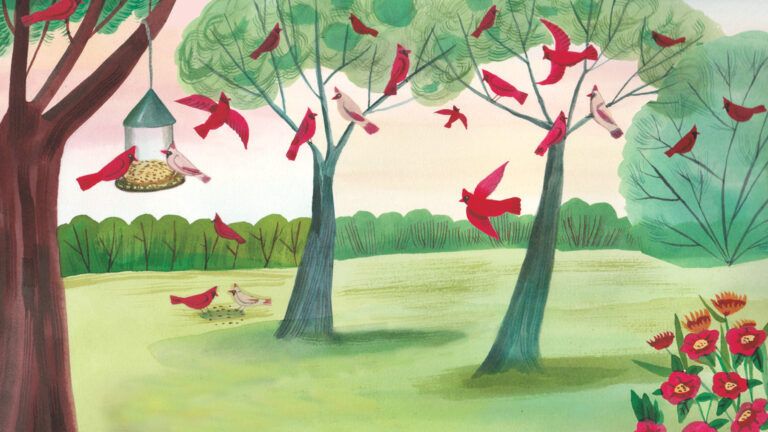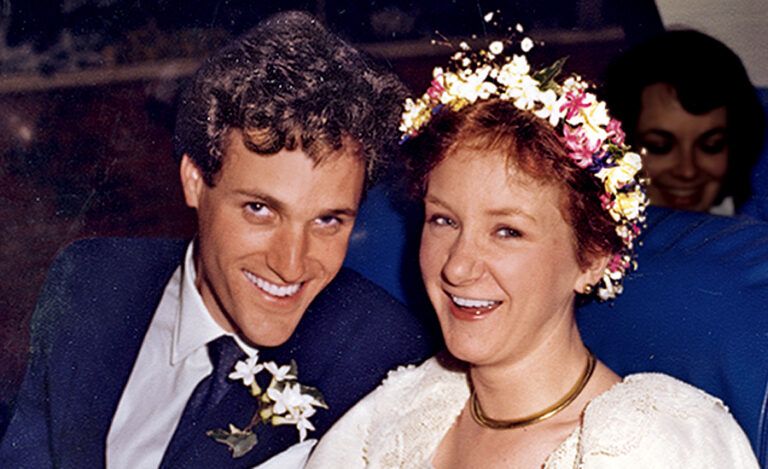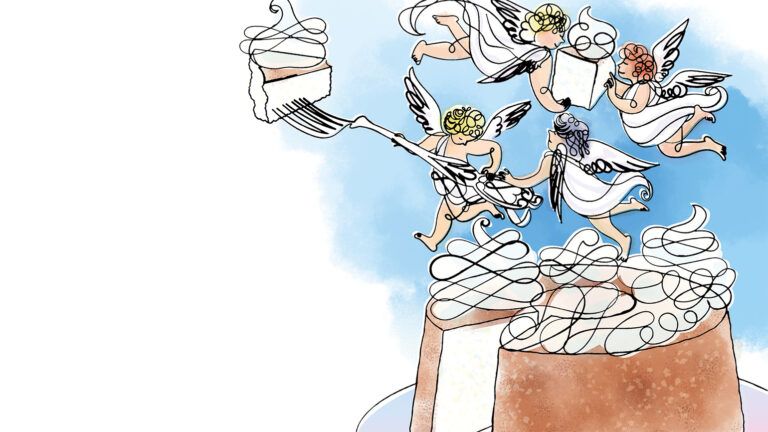Not long ago I was at a bookstore in my hometown of Pasadena, doing a reading of a memoir I’d written, and some of my old high school friends showed up, supporting me, urging me on, like we did for each other back in the day. Michael was there—Michael who’d danced with a bottle balanced on his head when we performed Fiddler on the Roof—and he reminded me of something our beloved drama teacher and director, Mr. Clopper, used to say: “God is love, angels.”
That was the benediction Clop, as we called him, gave us on opening nights, when our nerves were most fraught, when we wondered if we would be any good, when all the work of our rehearsals would have to show. When we yearned for his blessing on what we had wrought.
I wasn’t quite sure why Clop used those words back then. They felt good, of course. We had pushed ourselves farther than we ever thought possible. We had learned our lines, had absorbed the playwright’s intention for our characters. We had our blocking down cold. Now was the moment we had to perform for our classmates and parents and friends, hoping they liked what we had put our whole hearts into.
God was indeed love, Clop was there to reassure us. But why did he use the word angels? What was that about? I thought maybe it was just a tagline. Sometimes, in a playful mood, Clop would change a letter around and make it “angles” instead of angels. But who were these angels?
Clop was an exacting taskmaster, not at all given to spouting bland aphorisms. To those of us in the drama department, auditions for the first show of the year would begin in September and we would be in one show or another until the culminating performance of the senior class musical in the spring.
As you can imagine, we did some of the old standards like The Miracle Worker, The Diary of Anne Frank and The Music Man. In the winter he’d usually pick some show that had a lot of guy characters in it, like Mister Roberts or Stalag 17, to remind us that the gym and the ball field weren’t the only venues for male stardom (off-season, he could cast a few football players or baseball players for plum parts).
He always claimed that there was a place for everyone in the theater. Those who yearned for the limelight could trod the boards, but the classmates who sewed costumes or painted sets or hung lights or raised curtains were equally valuable, if not more so. We were taught that when the audience clapped it was not just for those on stage but everybody behind it and below it.
“Just remember,” he’d tell any lead actor foolish enough to think he ran the show, “at any moment the techie at the light board could leave you in the dark.”
In our classes we had to direct scenes, write monologues and do improvs, creating our own mini-dramas. Clop himself had undergone his training at the Pasadena Playhouse where he had studied with famous Hollywood actors. But it would be a mistake to assume that Mr. Clopper was just another frustrated would-be Hollywood actor-turned-teacher. He loved teaching teenagers and believed in his core that it was his calling. To make a difference to us.
 “No matter what you do,” he said, “the skills you learn here will be valuable for life.”
“No matter what you do,” he said, “the skills you learn here will be valuable for life.”
We learned to be better listeners. When acting a part we looked for the motivation of a character, something we learned to do in real life, trying to get inside of people and understand what made them tick. That wasn’t so far off from what Jesus taught—the Golden Rule, or loving our neighbors as ourselves.
Most of the starring roles went to upperclassmen, but as a sophomore I was cast as a lead in that year’s musical, Brigadoon. I had to sing the love song “Come to Me, Bend to Me” and dance in a kilt for my bonnie Jeanne. I remember giving an early glimpse of the show at an assembly and making mincemeat of the song I was supposed to sing. I wanted to die.
But Mr. Clopper showed me and the rest of us how nerves could be your friend. That little bit of adrenaline, that buzz you got, could help you concentrate, could get you focused and give you an added boost. As long as you practiced a lot. Preparation was everything. (Years later when I had to perform at Carnegie Hall, singing a solo, I remembered this lesson well. How to get to Carnegie Hall? Practice, practice, practice!)
People used to say of our productions, “It seemed professional.” But that wasn’t Clop’s goal. He didn’t want us to act like professionals. He wanted us to infuse all that we did with love. The love of the words we were saying or singing, the love and respect we had for each other, the love we generated by what we did.
That would explain why he told us, “God is love.” But why “angels”? What was that about?
It was only now, all these years later, in that bookstore that I put it together, that it finally made sense. “He was calling us angels, wasn’t he?” I said to Michael.
Michael looked at me bemused.
“Mr. Clopper. When he said, ‘God is love, angels,’ he meant that we were the angels.” Because we had worked so hard, because we’d stretched ourselves, discovering that we had wings.
Michael recognized my grasp for the obvious. “Of course.” If God made humans just a bit below the angels, it was because we have so many unrealized angelic properties. As I found out, all it takes is a mentor, a teacher, a Shepherd, a friend, to call them out and help us take flight.
For more inspiring stories, subscribe to Guideposts magazine.




